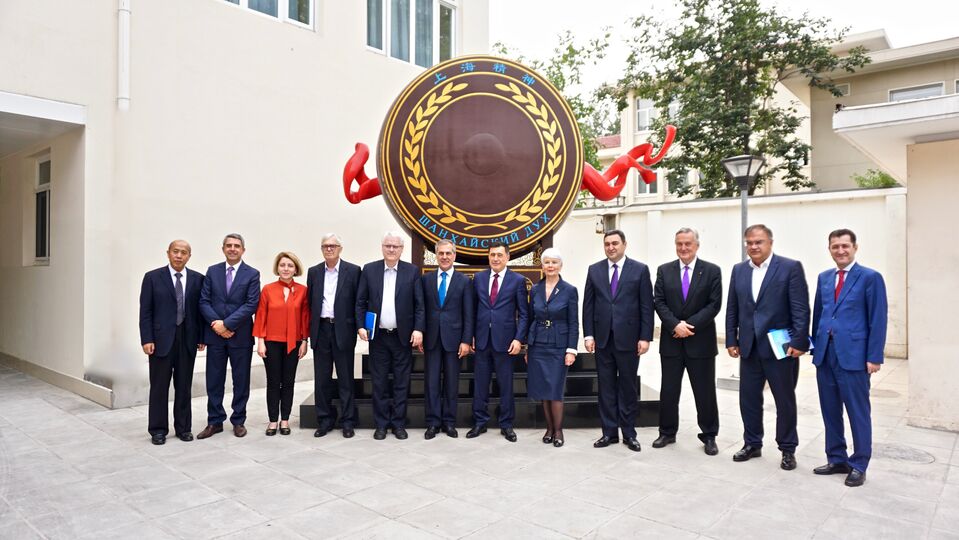On 26 June 2019, SCO Secretary-General Vladimir Norov held a meeting with representatives from the Nizami Ganjavi International Centre at the SCO Secretariat. The delegation included former European and Asian heads of state and government.
During the event, Mr Norov focused on the SCO's history and main fields of activity.
He said that it took the SCO a historically short span of time to integrate into the system of international relations and now it was consistently strengthening its prestige in the world. It has developed a legal infrastructure and signed numerous agreements as well as other regulatory documents governing the multi-vector interaction between the SCO member states.
He stressed the importance of the Shanghai Spirit and the SCO's consensus-based decision-making model and pointed to the universal and multifarious nature of political, security, economic and cultural cooperation between its members.
In his reply, former Bulgarian President Rosen Plevneliyev thanked the Secretary-General for his hospitality and praised the SCO efforts to establish practical cooperation within the SCO and expand international ties with partner organisations.
In his turn, former Prime Minister of Bosnia and Herzegovina Zlatko Lagumdzija noted the SCO's achievements in the fight against terrorism and extremism and in the context of efforts to ensure security and sustainable development in the Eurasian space.
The visitors gave details of their Centre's activities and its contribution to intercultural dialogue.
The sides also exchanged views on the current situation in Afghanistan and the role of regional and international organisations in promoting the intra-Afghan dialogue.
Vladimir Norov also answered delegation members' questions related to the outcome of the SCO Bishkek summit.
The Nizami Ganjavi International Centre (NGIC) was established on 30 September 2012 in Azerbaijan. Its members are over 100 current or former heads of state and government. The NGIC's aim is to promote dialogue and mutual understanding between cultures and peoples.
